Holding the weight of what came before us.
Diving into generational trauma wounds and the ways we can heal forward, together 💗
Have you ever reacted to something in a way that didn’t quite make sense?
Maybe you’ve noticed an overwhelming sense of guilt, fear, or pressure that isn’t just yours. Maybe you’ve noticed patterns in your family—ways of thinking, behaving, or coping that persist, even when they no longer serve you.
This isn’t a coincidence. It’s the impact of intergenerational trauma, also known as historical trauma - the emotional and psychological wounds that get carried through families and communities over time.
Especially for Black, Indigenous, People of Colour, this trauma is often rooted in deep histories of oppression, from slavery and colonization to segregation and systemic racism. The fears, survival tactics, and unspoken lessons our ancestors learned in order to navigate a hostile world didn’t just disappear. They live on in our bodies, minds, and family dynamics in ways that can be both seen and unseen.
Breaking Down Intergenerational Trauma
Intergenerational trauma is more than just inherited pain, it’s a process. It doesn’t show up the same way for every family, and it’s not just about what happened in the past. Intergenerational experiences and ancestral pain continue to shape us today.
Some of the most common ways trauma gets passed down include:
🧬 Biological Transmission: Research in epigenetics suggests that trauma can literally alter gene expression, making future generations more vulnerable to stress, anxiety, and health issues.
🗣️ Verbal Transmission: The way we talk about (or don’t talk about) traumatic experiences matters. Black parents, for example, often have to teach their children how to interact with police for their safety. This "Talk" isn’t just a conversation; it’s a survival strategy that carries the weight of generational fear and injustice.
👀 Modelling Behaviours: How our families respond to stress, discrimination, and adversity shapes the way we learn to move through the world. From code-switching in white spaces to suppressing emotions for the sake of resilience, these patterns often get repeated without question.
On top of all this, racial trauma - the ongoing stress of racism, discrimination, and oppression - keeps these wounds from fully healing. Unlike other forms of PTSD or post-traumatic stress, racial trauma isn’t always "post" or something that happens after the fact.. In fact, it’s often ongoing and cummulative, leaving little space to recover before another painful experience emerges.
More Than Just ‘Feelings’
The effects of generational trauma don’t just live in our minds; they show up physically 💪🏾, emotionally 💔, and cognitively 🌀 in ways we may not always recognize.
Fatigue, mental fog, intrusive thoughts, trouble sleeping, numbness, feelings of worthlessness, chronic stress, and even immune system concerns have all been linked to unprocessed trauma and inherited wounds.
This trauma shapes entire families and communities. It influences parenting styles, relationship dynamics, and even the way we see ourselves in the world.
This looks like:
Family secrets and unspoken pain
Substance use as a coping mechanism
The pressure to work "twice as hard" to get half as far
Toxic relationship patterns and emotional avoidance
Strict discipline and tough love as survival strategies
Disconnection or displacement from ancestral origins and knowledge
But here’s the thing: we inherit struggle, but we also inherit strength. We get to decide what cycles we pass forward—and what ends with us.
The Shift from Survival to Flourishing
Our ancestors didn’t always have space to process their pain. Survival meant silence, endurance, and sacrifice. But we have the power to move differently—to exist differently.
Moving from generational trauma to generational resilience means shifting from survival mode into a space where rest, joy, and care are not luxuries but necessities.
This doesn’t mean ignoring what came before us. Instead, it means acknowledging the grief and strength in our lineages, holding both with reverence. It means learning to regulate our emotions in ways our caregivers may not have been able to. It means practicing self-compassion instead of repeating cycles of shame.
So How Do We Begin to Heal?
🔎 Unpack Our Histories
Healing generational trauma isn’t just an individual journey—it’s communal. Whether it’s therapy, cultural rituals, or deepening friendships rooted in care, resilience is strengthened through connection.
Personally? I’m of the belief that healing is both an inward and outward practice: we unlearn harmful patterns internally, but we also build relationships and communities that reflect the safety, care, and dignity we deserve.
If you’re navigating this shift, some questions I like to consider:
🌱 What are the survival patterns you’ve inherited that no longer serve you?
🌱 What are the unspoken rules, secrets and wounds in my family? In my community?
🌱 How can you offer yourself the care and gentleness your ancestors didn’t receive?
🌱 What small acts of joy, rest, or boundary-setting help you build resilience?
Breaking cycles doesn’t happen all at once, but every intentional choice—every moment of rest, every boundary upheld, every moment of self-forgiveness—is a step toward generational resilience.
📣 Speaking Truth to Pain
Acknowledging trauma doesn’t mean staying stuck in it. It means giving language to the experiences that have shaped us—especially the ones that have been silenced for generations.
Speaking truth to pain is an act of reclamation. It’s saying: This happened. It hurt. And I deserve to heal. Whether through therapy, journaling, creative expression, or honest conversations with trusted people, we begin to process and release what we’ve carried for too long.
💛 Reclaiming Life Beyond Our Wounds
Rest is resistance. Play is resistance. Healing isn’t just about fixing what’s broken; it’s about building something new, embracing joy, creativity, and ease. We get to redefine the terms of resiliency and growth by choosing healing over harm, community over isolation, love over fear.
Final thoughts: We Are More Than Our Pain
Breaking generational cycles means carrying both wounds and wisdom. We are not just survivors—we are creators of new legacies.
We create anew in the softness we allow, the boundaries we set, and the joy we claim. Honouring our ancestors doesn’t mean repeating their struggles—it means choosing a future rooted in healing. And that is a legacy worth leaving.
☞ What’s one pattern you’re choosing to release?
☞ Or one act of care you’re embracing?
Let’s name and claim it together. Drop a comment or share this with someone who needs the reminder.
Until next time,
—Meghan 🤎
This letter was originally shared on The Growing Pains Collective, a newsletter written by myself and the therapists at my practice Bloom Psychology & Wellness. A free resource written by real therapists and people — off the algorithm.
— — — — — — — —
Subscribe to Growing Pains 🌳 (we share 2-3x monthly)
Check out Bloom’s therapy options 🇨🇦 🛋
Sign up for our next art therapy collage workshop: Re/ Mix Collage Journalling for Creatives of Colour
Join our group therapy cohort starting May 10th 2025 — Navigating Relationships with Emotionally Immature Parents & Families 🛋 😮💨

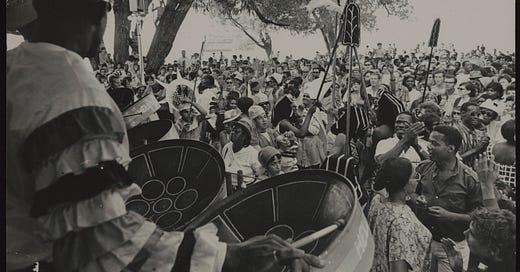



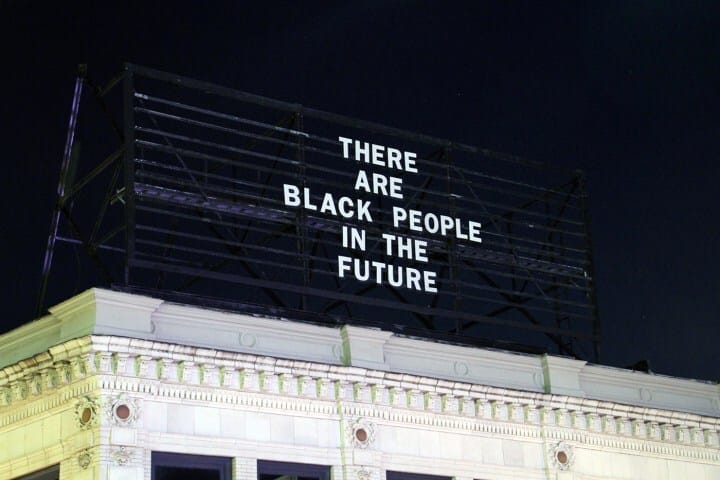
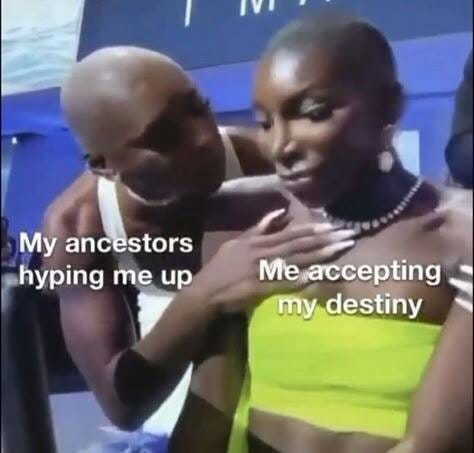

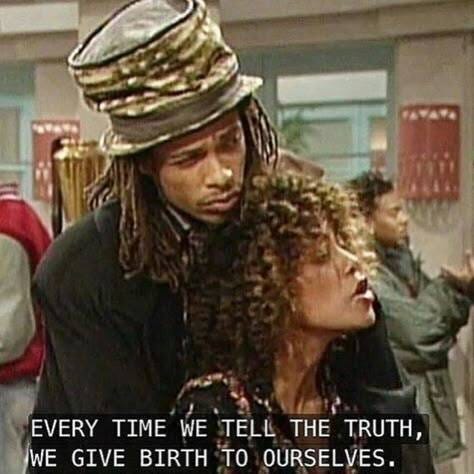
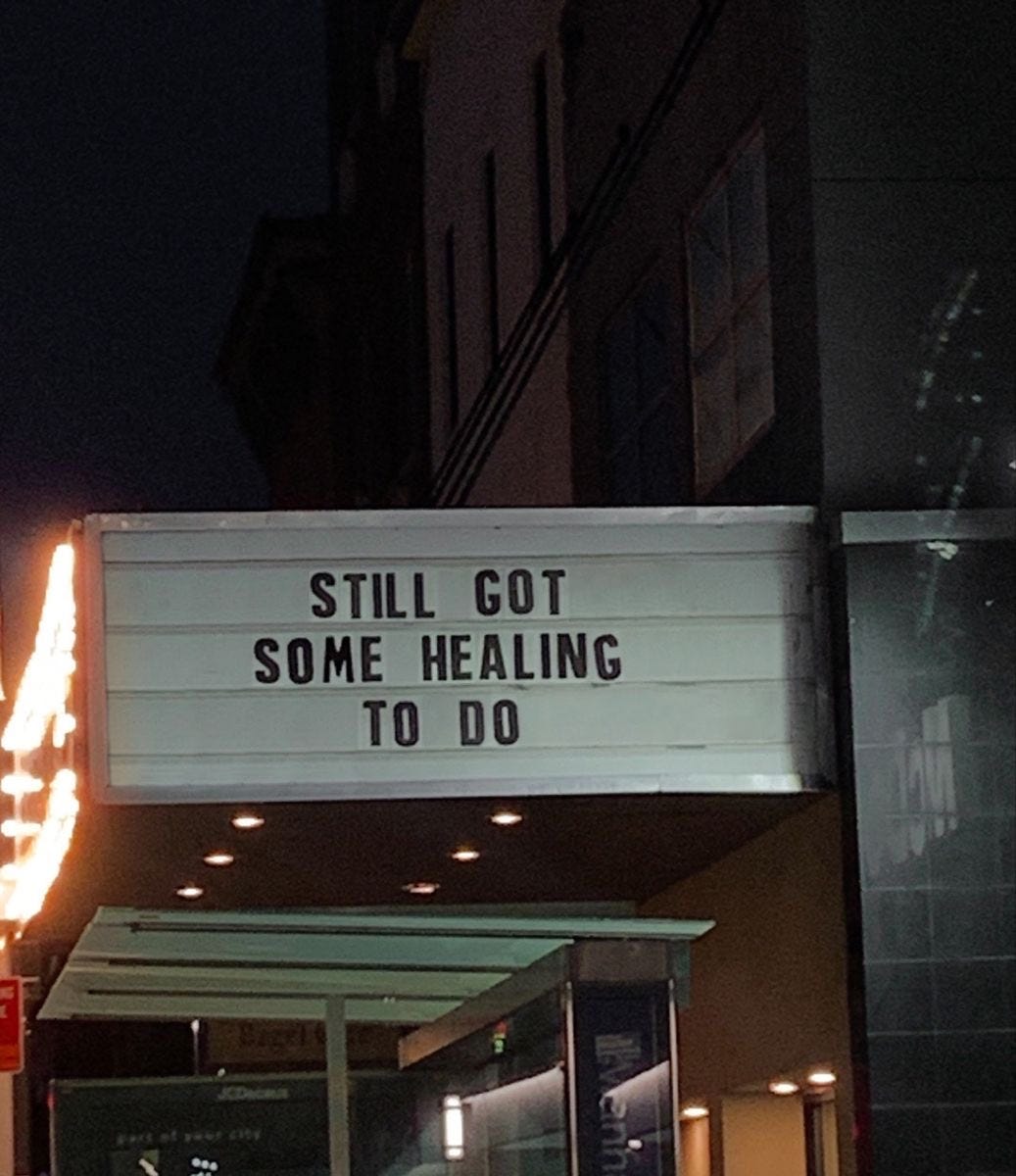
You formulated such a complex topic in excellent words! In my journey, I’ve left behind what I call the “secret voice” that’s shared in my family and community. It’s when people say one thing out loud, and whisper their true thoughts to someone else. I can’t stand it & it’s very disingenuous of a communication style.